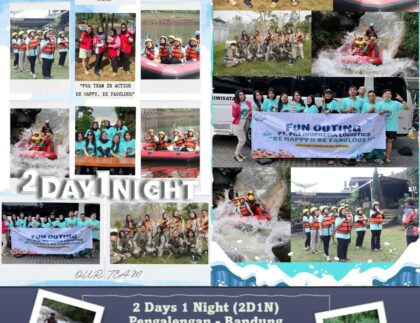
In the fast-paced world of global logistics, every project carries with it unique challenges and opportunities. Recently, our teams at PGS Logistics Japan Co. Ltd and PGS Global Forwarding India Pvt. Ltd came together to successfully manage and execute a major Break Bulk Machinery Project cargo movement. This project not only demonstrated our technical expertise in handling complex logistics but also showcased the seamless collaboration between our global offices.
The shipment, which originated in Kobe, Japan (POL), was destined for Mumbai, India (POD). It consisted of 11 packages with a combined weight of 47,540 kilograms and a massive volume of 454,272 cubic meters. The movement required precision planning, diligent monitoring, and effective execution at every stage. From the negotiation of freight terms to the loading and stowage of heavy cargo, this was a true test of teamwork, foresight, and professionalism.
Understanding Break Bulk Machinery Project Cargo
Before diving into the details of the project, it is important to understand what Break Bulk cargo means in logistics. Unlike containerized shipments, Break Bulk refers to goods that must be loaded individually rather than in standard shipping containers. These shipments are often oversized, heavy, or irregularly shaped machinery or equipment that cannot fit into conventional containers.
Project cargo takes this complexity one step further. It often involves large-scale, time-sensitive, and high-value shipments that may require multimodal transportation and careful coordination across countries. Break Bulk Project cargo requires special expertise in port handling, chartering, stowage planning, and customs clearance—all of which were key elements in this project.
Planning and Preparation
The success of this shipment started well before the cargo was moved. The PGS Japan team led the planning phase, ensuring that every detail was addressed.
This included:
- Cargo assessment: - Carefully analyzing the machinery dimensions, weight, and packaging to determine handling requirements.
- Route planning: - Identifying the most efficient route from Kobe to Mumbai, while considering port capabilities and vessel availability.
- Freight negotiation: - Engaging with shipping lines to secure the best Break Bulk freight terms, balancing cost-effectiveness with service reliability.
- Compliance checks: - Ensuring all documentation, permits, and port regulations were in place ahead of time.
Thanks to the diligence of our team in Japan, the cargo was properly prepared, securely packaged, and cleared for international movement without delays.
Execution at Port of Loading – Kobe
At the Port of Kobe, the machinery was carefully loaded onto the Break Bulk vessel. This stage required special attention to lifting, securing, and stowage planning, as even minor miscalculations could risk the safety of the cargo and crew.
Our team worked closely with port operators to ensure the following:
- Specialized equipment was used to lift heavy packages safely.
- Weight distribution was balanced during stowage to prevent vessel instability.
- Lashing and securing were performed according to international standards, ensuring cargo remained immovable during the ocean voyage.
The loading operation was executed smoothly, demonstrating both the technical skill and commitment of our on-ground team in Japan.
Ocean Transit and Coordination
Once the cargo was onboard, the coordination did not stop. The project required continuous monitoring during the ocean transit from Japan to India. Our operations team kept regular communication with the vessel and provided real-time updates to all stakeholders.
The focus was on:
- Monitoring vessel schedules and port ETA.
- Anticipating potential weather disruptions or route adjustments.
- Coordinating with the receiving team in India to ensure readiness at the Port of Mumbai.
This proactive communication minimized uncertainties and ensured that both sides of the operation—Japan and India—were aligned.
Arrival and Operations at Port of Discharge – Mumbai
Upon arrival at the Port of Mumbai, the project was taken over by PGS Global Forwarding India Pvt. Ltd. The India team played a crucial role in the receiving, handling, and final clearance of the machinery.
The discharge process mirrored the same precision as the loading in Kobe. Heavy-lift equipment and skilled operators were deployed to safely unload the cargo. The team ensured that customs formalities were completed swiftly, avoiding unnecessary port storage costs or delays.
The transition from ocean freight to local handling was seamless—an achievement made possible by pre-arrival coordination between PGS Japan and PGS India. This handover highlighted the strength of our global network, where each regional office functions as an extension of the other.
Teamwork Across Borders
What made this project truly remarkable was the collaboration between teams separated by geography but united by purpose. While PGS Japan handled the planning, freight negotiation, and loading operations, PGS India ensured a smooth transition upon arrival and effective local handling.
This joint effort reflects the very ethos of PGS: operating as one global family, offering end-to-end logistics solutions with consistency and care. The project demonstrated how different branches of our organization can leverage their expertise to achieve a common goal, ensuring client satisfaction and operational success.
Key Learnings from the Project
Every successful project offers valuable insights for future endeavors. From this Break Bulk Machinery Project cargo, we observed:
- Early planning is critical. Starting preparations well in advance reduces last-minute complications.
- Cross-border communication is the backbone of success. Constant updates and transparent communication helped both teams stay aligned.
- Technical expertise ensures safety. From lifting operations to securing cargo, adherence to international safety standards was vital.
- Client confidence is built on execution. The professionalism demonstrated by our teams strengthened trust with the client and reinforced our reputation in handling complex logistics.
Acknowledging Our Teams
This achievement would not have been possible without the dedication of our colleagues in both Japan and India. Special thanks to:
- PGS Logistics Japan Co. Ltd – for meticulous planning, freight negotiation, and ensuring safe loading operations in Kobe.
- PGS Global Forwarding India Pvt. Ltd – for managing the arrival, unloading, customs clearance, and local execution in Mumbai.
Your commitment to excellence turned a challenging project into a seamless success story.
Looking Ahead
At PGS, we pride ourselves on being more than just a logistics provider. We are problem-solvers, innovators, and trusted partners for clients around the world. Projects like this reinforce our capabilities in handling complex Break Bulk and project cargo movements across borders.
As industries continue to demand specialized logistics solutions—whether for heavy machinery, energy equipment, or industrial projects—PGS stands ready to deliver. With our global network, technical expertise, and dedicated workforce, we remain confident in our ability to support clients with end-to-end project management.
Final Note
The successful handling of this Break Bulk Machinery Project cargo is a testament to our shared values of teamwork, commitment, and excellence. It highlights how collaboration across countries can achieve outstanding results.
For any inquiries about our Project Management services, please reach out to us at:
Together, let’s continue to build on these achievements and set new benchmarks in the world of global logistics.











